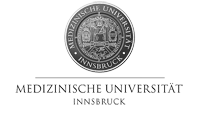|
|
 |
1Departments of Paediatrics Medical University Innsbruck, 2University München Schwabing, 3University Prag, 4University Münster, 5University Heidelberg, 6Medizinische Hochschule Hannover, 7University Heidelberg, 8HKI Jena, 9Department of Hygiene, Microbiology, Social Medicine and 10 Department of Biology and Humangenetik, Medical University Innsbruck
Patients with atypical recurrent HUS have particularly complement disorders. The complement inhibitors like factor H are of pivotal importance. On chromosome 1 a cluster of regulators of complement activation (RCA Cluster) is localized. Factor H related protein 1 is a member of the RCA cluster. It shares homology to the C-terminal end of factor H. This part of the molecule is the C3b binding site and mutations probably responsible for the missing complement inhibition. The influence of FHR-1 in patients with HUS has to be elucidated.
Since the year 2001 51 patients with atypical/ recurrent HUS were evaluated in a multicentre study including Austria, Czechia, Germany, Hungary and Switzerland. FHR 1 was analysed by genetic screening techniques (PCR) and with a qualitative enzyme immunoassay for the three different complement pathways. Out of 51 patients 10 (19%) children had no FHR1. 6/10 patients had a recurrent form of HUS and two patients received a renal transplant. One patient was transplanted four times, only the last transplantation was successful. The other patient was transplanted twice. All unsuccessful transplantations were lost due to recurrence. Both patients demonstrated high activity of the alternative pathway of the complement system. Patients with atypical or recurrent HUS have a high recurrence rate after transplantation. Patients with a defect in FHR1 are no exception. New therapeutic strategies are urgently needed. Living related transplantation should not be performed in these patients. Thus, genetic testing in patients with HUS is mandatory before transplantation. In addition, the patients should be registered in order to improve outcome www.hus-net.at.
